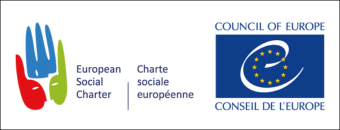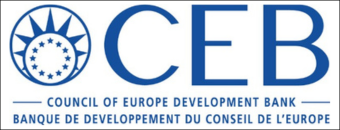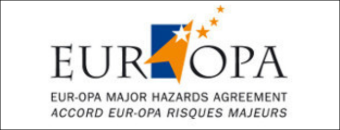Social Rights, Health and Environment Directorate

Democratic stability and security depend on the full realisation of human rights by everyone. These rights include access to social justice, health, and a clean, sustainable environment. Tackling fundamental challenges for both present and future generations is a central priority for our Directorate.
We address pressing issues such as combatting extreme poverty and social exclusion, leveraging mechanisms like the European Social Charter and the Council of Europe Development Bank to rebuild social ties, restore trust in national institutions, and strengthen democratic resilience.
In the area of health, we support the development of multidisciplinary, innovative, and evidence-based drug policies focusing on the realities of local implementation. Additionally, we implement the Convention for the Protection of Human Rights and Dignity of the Human Being with regard to the Application of Biology and Medicine (Oviedo Convention) and address threats to public health and safety by promoting the MEDICRIME Convention, the first binding international treaty to counter the counterfeiting of medical products and similar crimes against public health, and the Convention against Trafficking in Human Organs.
Our work extends to building robust and effective systems for environmental protection and addressing the triple planetary crisis of pollution, climate change, and biodiversity loss. These efforts aim to mitigate their impacts on human rights, democracy, and the rule of law.
The Council of Europe has a longstanding important role in developing standards in emerging policy areas. We have a proven track record of protecting social rights, public health, and the environment through unique legal and policy instruments that guide our actions. With this foundation, our Directorate is committed to contributing effectively to overcoming present and future challenges in our areas of expertise."

Social rights

The European Social Charter, the natural complement of the European Convention on Human Rights, guarantees social and economic human rights. It was adopted in 1961 and revised in 1996. The European Committee of Social Rights (ECSR) is the body responsible for monitoring compliance in the states party to the Charter.

Partial Agreement on the Council of Europe Development Bank

The Secretariat of the Partial Agreement on the Council of Europe Development Bank (CEB) provides comprehensive secretariat services for the statutory meetings and activities of the CEB’s collegial organs. It also ensures and develops links between the Council of Europe and the CEB.

Countering falsified medical products

The Council of Europe's MEDICRIME Convention is the first binding international instrument in the criminal law field on counterfeiting of medical products and similar crimes involving threats to public health.
Safeguarding of public health through penal measures against criminal behaviors, protection of victims, promotion of cooperation at national and international levels, and preventive measures are the overarching aims of the Convention.

Countering the trafficking in human organs

The trafficking in human organs is a problem of global proportions that violates basic fundamental freedoms, human rights and dignity and constitutes a direct threat to public health, integrity, freedom and often the life of individuals. It is also frequently linked to the activities of transnational organised crime groups, who profit from a vulnerable situation of the donor. The trafficking in human organs is an international problem that demands a response from governments, legislative institutions and international organisations.
The approach of the Council of Europe to address this challenge consists of the two inter-related elements of:
- the common standards of the Council of Europe Convention against Trafficking in Human Organs (opened for signature in Santiago de Compostela, Spain, in March 2015) as the most relevant international criminal justice treaty to counter this crime
- the Committee of the Parties (CoP) consisting of representatives of Parties to the Santiago de Compostela Convention and responsible for assessing proper implementation of the Convention, preparing Guidance Notes and facilitating cooperation among the Parties.

Pompidou Group

The core mission of the Pompidou Group is to contribute to the development of multidisciplinary, innovative, effective and evidence-based drug policies in its member states. It seeks to link Policy, Practice and Science and focuses especially on the realities of local implementation of drug programmes.

Human rights and biomedicine

The Oviedo Convention signed by most of the European States, together with its Additional Protocols, sets out the fundamental principles applicable in day-to-day medicine as well as those applicable to new technologies in human biology and medicine.

Reykjavík process and the Environment

The 4th Summit of Heads of State and Government, held in Reykjavík on 16-17 May 2023, adopted the Reykjavík Declaration including the Appendix V on "The Council of Europe and the environment", and underlined “the urgency of additional efforts to protect the environment, as well as to counter the impact of the triple planetary crisis of pollution, climate change and loss of biodiversity on human rights, democracy and the rule of law”, while committing the Council of Europe to strengthening its work “on the human rights aspects of the environment and initiate the Reykjavík process of focusing and strengthening the work of the Council of Europe in this field”.
The Reykjavík process gathered steam in 2023 throughout the organisation, culminating in the creation of a Department on the Reykjavík process and the Environment in the Directorate General on Human Rights and Rule of Law on 1 January 2024, as well as an Inter-Secretariat Task Force on the Environment which will help develop a Strategy and an Action Plan on the Council of Europe and the Environment.

Protection of biodiversity

Forty-nine countries and the European Union are bound by the Convention and committed to promoting national conservation policies, considering the impact of planning and development on the natural environment, promoting education and information on conservation, and coordinating research. The Standing Committee of the Bern Convention sets standards and produces guidance through ‘recommendations’ and other tools. A monitoring system, an ecological network made up of Areas of Special Conservation Interest (the Emerald Network) and the European Diploma for Protected Areas complement the system.

Landscape

The aim of the Council of Europe Landscape Convention, ratified to date by 40 member States, is the protection, management and planning of the landscape, with reference to the entire territory of the States parties, promoting public awareness and participation. The Convention is based on the assumption that landscape is a key element of individual and social well-being everywhere, an essential component of human beings' surroundings and an important part of their quality of life. It thus helps to strengthen the link between human rights and the environment with a view to their mutual protection and enhancement. In the framework of the co-operation between the States parties, the Convention established the Landscape Award of the Council of Europe. The European Union and States that are not members of the Council of Europe can be invited to join the Convention.

EUR-OPA Major Hazards Agreement

The EUR-OPA Major Hazards Agreement, gathering 22 States, is a platform for co-operation in the field of major natural and technological disasters between Europe and the South of the Mediterranean. Its field of competence covers disaster risk reduction, in particular: knowledge, prevention, preparedness, risk management and post-crisis analysis. The main objectives of the EUR-OPA Major Hazards Agreement are to reinforce and to promote co-operation between member States in a multi-disciplinary context to ensure better prevention, protection against risks and better preparation in the event of major natural or technological disasters.

We promote, develop and monitor the implementation of human rights and rule of law standards


